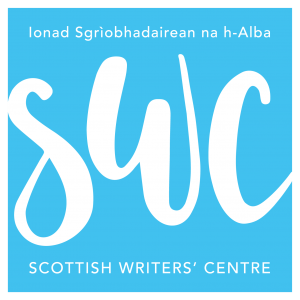
In the 1980s, Paisley was raising her six children on a single income. After a period of writing for commercial publications to pay the bills, she decided it was time to write for herself. In 1984, attending a Writers’ Group in Falkirk encouraged her to try styles she hadn’t previously considered. For her, this ‘strange work we do with language’ resulted in the ‘best things I ever did.’ Fast forward just over a decade and Janet had a wealth of work under her belt, ranging from her Scottish Book of the Year shortlisted poetry collection Alien Crop (1996) to her Critics’ Play of the Year Sooans Nicht (1996). Paisley’s writing career was now in full swing, with huge successes across varying literary forms, and her future only had more exciting projects in store.
In 2001, she earned a BAFTA nomination for competition-winning script Long Haul. It was put on screen by ITV, directed by Bob Blagdon and starred Billy Elliot’s Gary Lewis. It told the story of two people passing ships in the night, what Paisley called a story of the ‘deep [tragedy] that is mankind, humankind.’ While it’s clear her awards were a homage to her extreme talent, Paisley was keen to share with our audience the importance of opportunity, and grasping at whatever comes your way. As a writer, she delights in what happens when you take your eyes off a project and assures an audiences that sometimes, it can and will ‘just happen.’
But Paisley wasn’t writing only for wider audiences and a growing fan base, however, as much closer to home, she was asked to write a poem for her second son’s wedding. She worked hard to keep it ceremonial rather than personal and succeeded in doing so, as she has now seen it performed all over the world. From Australian beaches to American towns, her poem struck a chord with many of those exchanging vows and as Paisley said, it was like ‘a bird let out its cage’ seeing her words go from her personal world to the much wider one. Her work also found family connections in other places as she collaborated with her son’s friend, musician and filmmaker Adam Stoddart, in 2013. Written in Scots,what Paisley called her ‘personal crusade’ to save ‘our language’, she wrote No Hope For Men Below to run alongside a visual film Stoddart was creating to commemorate the Redding Pit disaster of 1923. A different style for her, the narrative poem was written for the ‘hardest audience’, those survivors and descendants of the mining tragedy. It was a project Paisley and Stoddart felt relevant and important, as tragedies of a similar kind occurred throughout the world, 100 years later.
On novels, Paisley admitted that, much like for any writer, not every piece of work is a success. Her first was an attempt to write down a whole life story but it was thrown in a drawer and eventually resurfaced as a short story instead. She says it’s so important to read the work you’ve written as you’ll either love and enjoy it and not want to put it down, or you’ll get to editing and swiftly get a sense of what you want it to become. However, she doesn’t rule out the option of having a bonfire either!
Her final advice comes in our Q+A section, as the audience are keen to engage more with Paisley after such a wonderful insight into her career. On writing on tragedy, she assures a writer in the audience that often we cope by managing information and that if you’ve been affected by something, it becomes part of your history. Paisley says to write about what you know, and personal experience is just that. She feels that artists are trusted with something and the job is to present it in such a way that can become therapeutic, both for reader and writer.
It was an inspiring night hearing about Janet Paisley’s career. From a writer who has been so successful across so many mediums, she provided useful tips and inspiring stories for all the audience. Her business-like attitude to writing crossed paths with her love and desire to document tragedy and joy alike many years ago and since then, Paisley has delighted her audiences with poetry, stories, plays and films, earning herself a well deserved place as one of Scotland’s most popular writers.
For more information on Janet Paisley and her work, see her website here.
Check out the SWC Instagram (@ScottishWritersCentre) and Twitter (@ScottishWriters) for live updates at all our events.
Words and images by Kath Warren



